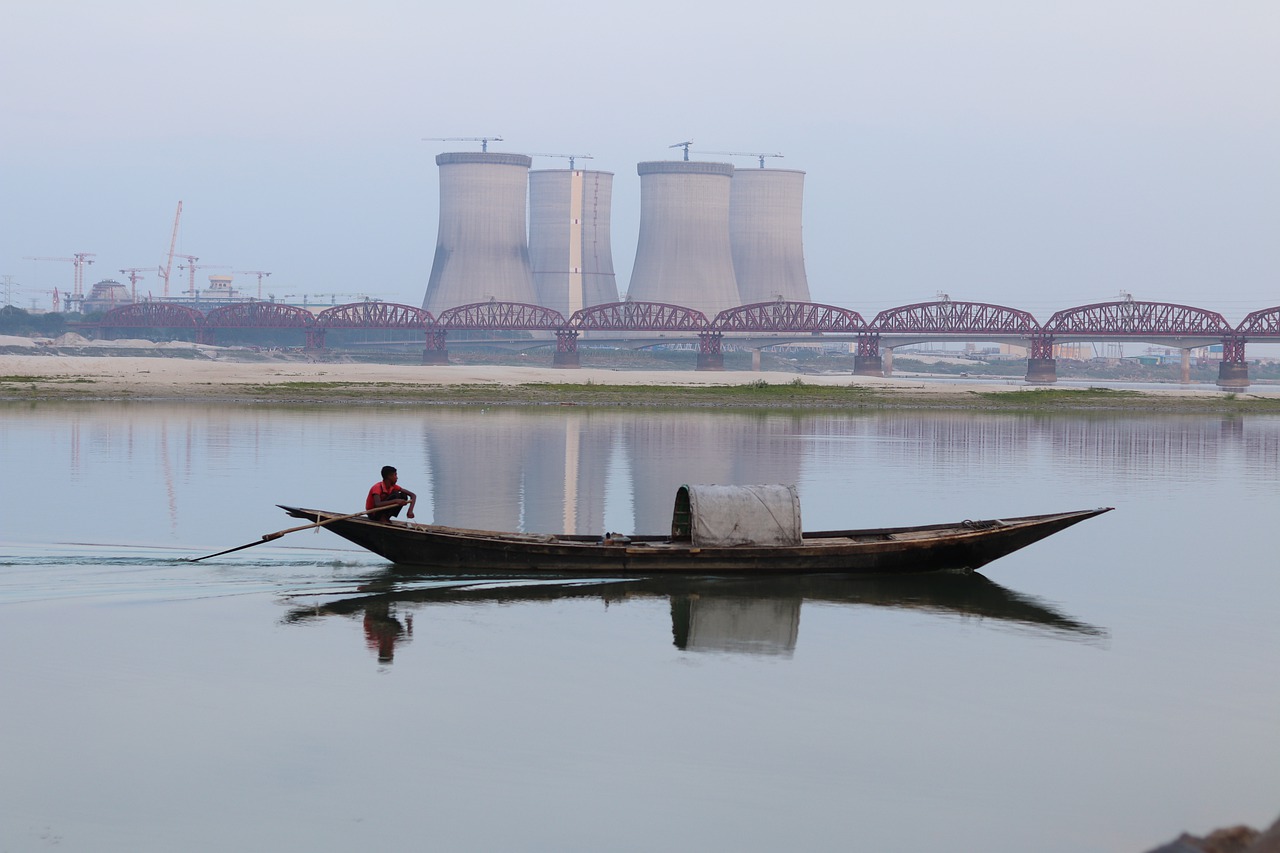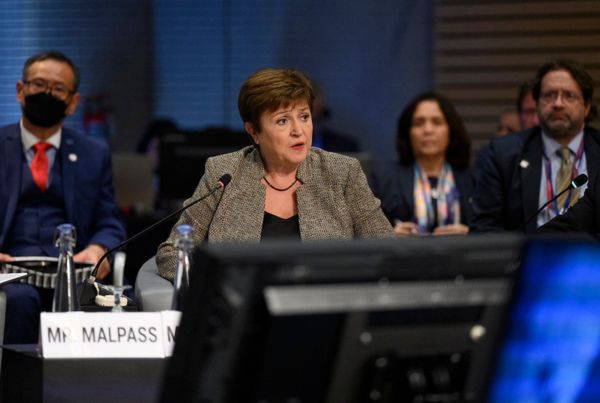In this deep dive:
- What role should the International Monetary Fund (IMF) play in responding to the climate crisis?
- What influence have IMF policies had on accelerating climate change and responding to its impacts?
- What is the IMF’s new climate strategy?
- What’s the Task Force on Climate, Development and the IMF, and what are their recommendations for the future?
What role should the International Monetary Fund (IMF) play in responding to the climate crisis?
Recent years have witnessed rising temperatures, with 2020 being one of the hottest years on record and ten of the warmest years occurring in the previous 15 years. The escalating frequency and intensity of extreme weather events have resulted in significant economic costs, surpassing $6 trillion in the current century and estimated at $298 billion in 2021 alone. Small Island Developing States (SIDS) have particularly borne the brunt, with damages exceeding 100 per cent of their GDP for a single event.

Failure to stabilize the climate within the next decade could lead to social and economic costs three times larger than if immediate action is taken. The consequences may even jeopardize humanity’s survival.
Since 2015, various stakeholders, including governments, international organizations, corporations, civil society, and financial institutions, have converged around the goal of achieving net-zero emissions by mid-century. However, as the sole multilateral institution responsible for maintaining international financial stability, the International Monetary Fund (IMF) holds a pivotal role in facilitating a rapid and equitable transition towards sustainability.
Beyond national-level climate risk and financial stability, the IMF also monitors cross-border spillovers and recognizes ‘spillover’ transition risks, where one country’s policies affect the financial and fiscal systems of others.
This unique role means that the IMF could assist countries in understanding the implications of achieving global net-zero emissions by mid-century while playing a frontline role in addressing climate shocks that affect the balance of payments, fiscal stability, and economic growth. Existing lending programs could be adjusted to support climate and development objectives, and new financing options may be necessary for vulnerable countries.
What influence have IMF policies had on accelerating climate change and responding to its impacts?
The IMF exerts considerable influence on the domestic policies of most countries, even those outside its lending programmes. Through its annual Article IV assessments or ‘surveillance’, the IMF monitors countries’ fiscal policies and overall economic conditions, offering recommendations that shape the direction of policy.
There is evidence that the IMF has encouraged the expansion of fossil fuels, disregarding the pressing need for rapid decarbonisation to meet global climate goals. Several studies, including those conducted by Recourse and Boston University, have shown that the IMF’s policy advice to member countries continues to support a “business as usual” approach, failing to consider the economic risks posed by climate change beyond natural disasters for certain island states in its annual macroeconomic assessments.

An analysis by ActionAid USA and the Bretton Woods Project found the following IMF recommendations and advocacy had been made in the time since world leaders agreed to limit global warming to 1.5C through national action in 2015:
- In over half of the member countries (105), the IMF’s policy advice has been supportive of expanding fossil fuel infrastructure, despite global commitments to limit global warming to 1.5C through national emission reductions. This approach puts these countries at risk of stranded assets, such as coal plants that lose value in the face of clean energy competition, and contradicts global climate objectives and a just transition to renewable energy.
- In one-third of countries (69), the IMF has advocated for privatizing state-owned energy utilities as a means to reduce public spending. However, this can result in long-term agreements with foreign investors, making it challenging to transition away from fossil fuels.
- A third of all countries received advice to end energy subsidies, which the IMF considers a crucial step towards decarbonization. However, the research indicates that the focus is primarily on consumer subsidies, rather than addressing subsidies for fossil fuel production. This approach is unlikely to achieve significant emissions reductions, especially in developing countries where alternatives to fossil-based energy and transportation are limited. Instead, it shifts the burden of costs onto ordinary citizens, while failing to address the generous subsidies provided to fossil fuel companies.
What is the IMF’s new climate strategy?
The managing director of the International Monetary Fund (IMF), Kristalina Georgieva, has been vocal about the urgent need to address climate change. She believes that action on climate change is critical for global growth and economic stability and that it’s part of the IMF’s mandate to ensure financial stability.
The IMF has published several reports that echo this concern and call for a global carbon tax. A 2021 policy paper also stressed the importance of integrating climate change into their annual consultations.

Recently, the IMF completed a review that recommended recognizing climate change as a “macro-critical” factor. Additionally, they released a climate strategy that proposes hiring up to 95 additional staff to increase their capacity to work on climate-related issues.
What’s the Task Force on Climate, Development and the IMF, and what are their recommendations for the future?
Recognising the significant impact of the IMF on the transition to a low-carbon and resilient global economy, In October 2021, a new global task force was formed to provide research and advance a development-centred approach to climate change at the IMF. Its members include the Intergovernmental Group of 24 (G24), the Vulnerable Group of 20 (V20) Ministers of Finance, the UN Economic Commission for Latin America and the Caribbean, and the Boston University Global Policy Development Center, among others.
In October 2021, the task force made the following recommendations to the IMF, in order to ensure that its climate policies are development-centred and just:
- The IMF should take on a global role in addressing the economic impact of climate change, considering risks and opportunities at both national and global levels, and ensuring fair treatment for all countries. It has the mandate to play a global leadership role in addressing the macro-critical aspects of climate change and to ensure its surveillance and advisory functions are universal and evenhanded.
- The IMF needs to align short-term stability concerns with longer-term sustainable and resilient growth pathways, in line with its mandate to facilitate balanced expansion. The IMF should adapt to countries’ climate pledges and long-term strategies, offering emergency financing, facilitating investments, and providing policy advice for low carbon growth aligned with national priorities.
- The IMF must customize its policy advice to each country’s specific circumstances, recognizing the diverse challenges faced by fossil fuel producers, vulnerable small island nations, and major greenhouse gas emitters.
- The IMF should empower national and stakeholder ownership of policy, by collaborating with member countries and stakeholders, respecting national ownership and avoiding imposing environmental conditions, while supporting nationally driven strategies and financing needs.
- The IMF must prioritize equity and fair burden sharing, following the principles of the UN Framework Convention on Climate Change, with developed countries leading in climate finance and supporting developing economies in their decarbonization and resilience efforts.





